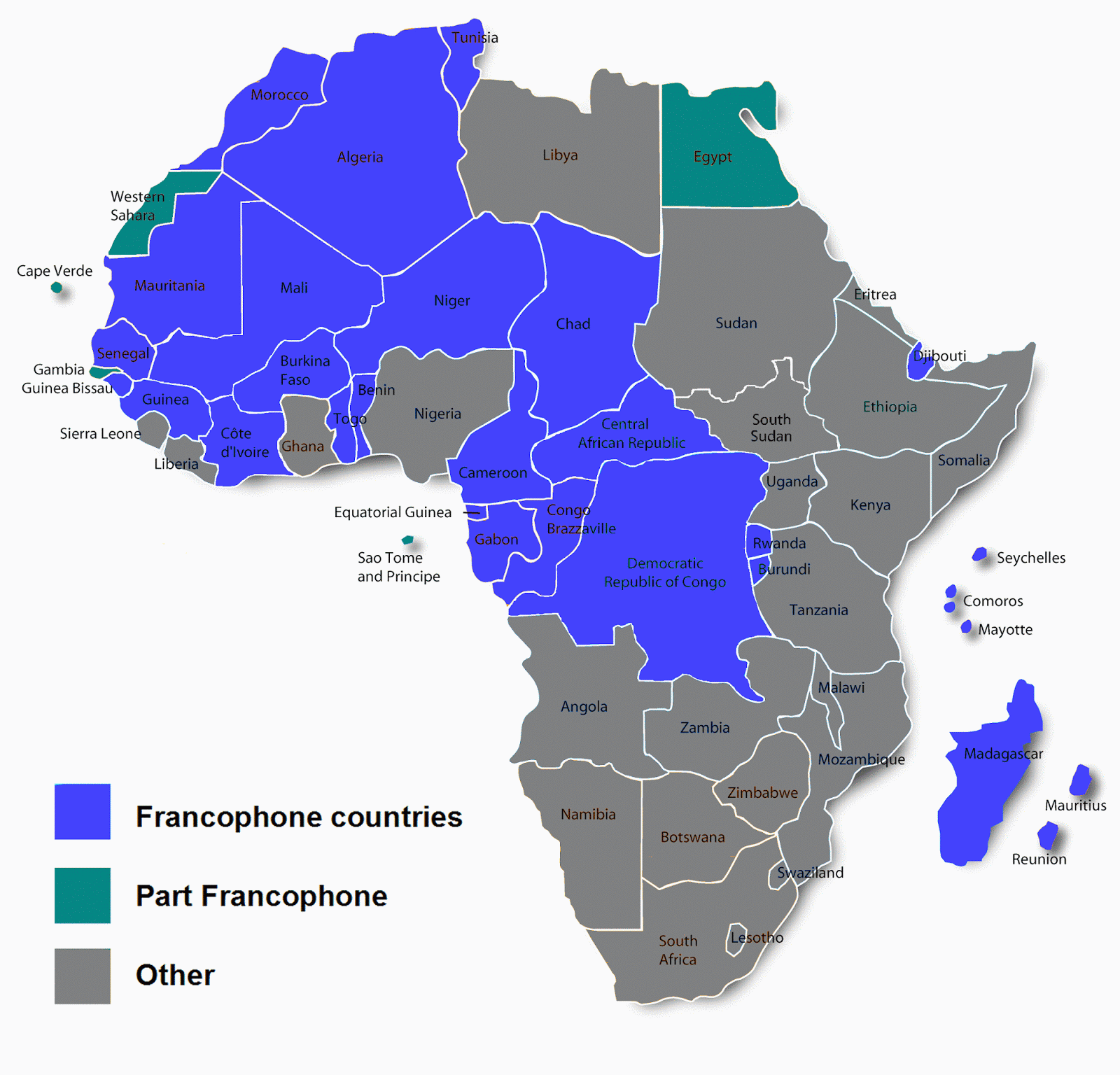Africa is home to a diverse array of cultures, languages, and histories, making it a continent rich in vibrancy and diversity. Among the many linguistic groups, the Francophone countries stand out, showcasing a unique blend of colonial history and indigenous traditions. These nations not only share the French language but also a connection to a broader Francophone community that spans the globe. This article explores the characteristics, significance, and contributions of Africa's Francophone countries, shedding light on their roles in the world stage.
The term "Francophone" refers to people and regions where French is spoken, either as a native language or as a second language. In Africa, this includes a variety of nations that have historical ties to France, resulting in a rich cultural fusion. From the bustling cities of Dakar and Abidjan to the picturesque landscapes of Madagascar, the Francophone countries of Africa offer a plethora of experiences that reflect their unique heritage and contemporary challenges.
As we delve deeper into Africa's Francophone countries, we will uncover their historical contexts, economic landscapes, and vibrant cultures. Understanding these nations is crucial not only for recognizing their contributions to global culture and politics but also for appreciating the diversity and unity that exist within the continent. Join us as we embark on this enlightening journey through the Francophone regions of Africa.
What are the Major Africa Francophone Countries?
When considering Africa’s Francophone countries, it’s important to recognize that they span across a significant portion of the continent. The most notable among them include:
- Senegal
- Côte d'Ivoire (Ivory Coast)
- Democratic Republic of the Congo
- Cameroon
- Burkina Faso
- Mali
- Niger
- Madagascar
How Did Colonial History Shape Africa Francophone Countries?
The colonial era left a profound impact on the linguistic and cultural landscape of Africa. French colonialism established a legacy that has shaped the political, educational, and social systems of many African nations. The French language was often imposed as the language of administration and education, leading to significant cultural shifts. Understanding this history is crucial to grasp the contemporary dynamics within these countries.
What are the Cultural Contributions of Africa Francophone Countries?
The Francophone countries of Africa are rich in cultural contributions, from literature and music to art and fashion. Writers such as Léopold Sédar Senghor from Senegal and Mariama Bâ from Mauritania have made significant contributions to world literature. The music scene is equally vibrant, with genres like Afrobeat and Rai gaining international recognition. Festivals celebrating these arts further highlight the importance of cultural exchange within the Francophone community.
How Do Africa Francophone Countries Influence Global Politics?
Many Francophone African nations play a vital role in global politics, particularly within the context of the United Nations and the African Union. Their shared language and colonial history foster a unique diplomatic relationship, allowing them to collaborate on various issues, including economic development, education, and environmental challenges.
What are the Economic Challenges Facing Africa Francophone Countries?
Despite their rich cultural heritage, many Francophone African countries face significant economic challenges. Issues such as poverty, unemployment, and political instability can hinder progress. However, several nations are making strides towards development through initiatives aimed at improving infrastructure, education, and healthcare systems.
How is Education Addressed in Africa Francophone Countries?
Education is a pivotal area of focus in many Francophone African nations. The legacy of colonial education systems still influences current practices, with French often serving as the medium of instruction. However, there is a growing movement towards incorporating local languages and cultures into educational curricula, ensuring that future generations appreciate their heritage while gaining the skills needed for global participation.
What are the Future Prospects for Africa Francophone Countries?
The future of Africa's Francophone countries is filled with possibilities. With the continent's young and dynamic population, there is a potential for innovation and growth that could reshape the global landscape. Efforts towards sustainable development and increased collaboration among Francophone nations could foster a more united and prosperous future.
Conclusion: Embracing the Diversity of Africa Francophone Countries
In conclusion, the Africa Francophone countries represent a unique blend of history, culture, and potential. Understanding their significance in the global context allows for greater appreciation of the continent's diversity. As we continue to explore and engage with these nations, we not only celebrate their rich heritage but also contribute to a more interconnected world.



